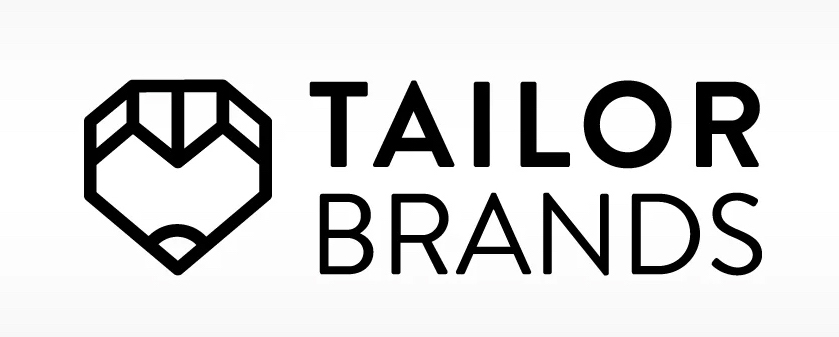The strategy consulting market is projected to expand by $70.08 billion from 2022 to 2027, presenting an excellent opportunity for launching a consulting business. A consulting career could suit you well if you excel in your field and are passionate about aiding others to succeed.
This guide explores the consulting industry and provides insights on marketing your consulting business, covering different consulting types and steps to establish a profitable, thriving consulting business.
>> Use Tailor Brands to Register Your Consulting Business >>
What Is a Consulting Business?
Consultants are recognized experts in their domains, offering insights and expertise for which individuals, departments, or entire companies are willing to pay. Their services extend beyond mere advice to diagnosing problems, gathering data, providing feedback, developing strategies, and assisting with implementation.
Hrair Tcholakian, the founder of eksperts.net, notes that a consultant’s key trait is their ability to see beyond the obvious, discover connections others may overlook, and inspire action and confidence.
Often, organizational leaders seek an external viewpoint on issues. As a consultant, you offer this impartial perspective. Both consultants and consulting firms attract demand for their novel approaches to urgent business problems or challenges, aiming to enhance their clients’ success.
Consultant vs. Contractor
The terms consultant, contractor, and freelancer might seem similar, as they all involve working with businesses without being full-time employees, but their roles differ significantly.
- Contractors, including freelancers, are self-employed individuals companies hire to perform specific services.
- Consultants mainly provide evaluations and expert advice, and they may work independently or for a consulting firm.
If a consultant is requested to offer a specific service or deliverable, they may take on a role similar to that of a contractor.
>> Use Tailor Brands to Register Your Consulting Business >>
Pros & Cons of Starting a Consulting Business
Pros
- Flexibility: Starting a consulting business allows you to set your hours, work from any location, and select projects that match your skills and passions.
- Low Overhead Costs: Typically, consulting requires a small upfront investment. Working from home or in a shared office can minimize the need for a large workspace or costly equipment.
- High Earning Potential: Consultants can charge high rates for their specialized knowledge, leading to substantial income as they establish a solid reputation and client network.
- Variety of Work: Engaging in diverse projects and sectors can keep the work environment dynamic and enriching, offering constant learning opportunities.
- Impact: Consultants can significantly influence organizations by addressing challenges, enhancing operations, and promoting innovation.
>> Use Tailor Brands to Start a Consulting Business >>
Cons
- Inconsistent Income: Consulting jobs can offer uncertain income, with earnings changing due to client needs, economic trends, and the consultant’s marketing effectiveness.
- Work-Life Balance Challenges: Consulting’s flexibility might mix work with personal time, potentially leading to extended work hours and challenges in shutting off, particularly with tight deadlines or several clients.
- Isolation: Often working solo and possibly from home, consultants might experience loneliness and miss the social aspects of a conventional office setting.
- Business Development Pressure: Consultants need to spend much of their time on networking, marketing, and finding new clients, which can be demanding and time-intensive, especially for those more focused on the technical side of their job.
- Liability Risks: Consultants risk legal issues if their guidance or work results in client financial losses or harm. Although professional indemnity insurance can reduce these risks, it adds extra costs and considerations.
How to Start a Consulting Business in 10 Steps
Follow these steps to start your own consulting business:
1. Identify your niche
2. Complete market research and analysis
3. Define and cultivate your brand identity
4. Craft a detailed business plan
5. Establish your services and pricing
6. Prepare proposal templates and contracts
8. Engage in networking and marketing activities
9. Launch your consulting operations
10. Analyze and make adjustments as needed
1. Identify Your Niche
The first step to launching a consulting business is choosing the niche you aim to serve. If you have substantial experience in a particular industry, consider making that industry your focus.
Your consulting services could appeal to various industries seeking guidance if your expertise is in a particular role. Starting a consulting firm? Consider bringing onboard consultants with diverse specializations to cater to different industries and roles.
For instance, a nurse with extensive experience might create a consulting business for the healthcare sector. Alternatively, a business expert with a background in management could offer consulting across multiple industries, focusing on management and business operations.
A consulting firm might include experts in certain sectors like healthcare or law or specific functions like management or finance. Successful consulting businesses clearly define their target clients and how they intend to assist them.
>> Use Tailor Brands to Start a Consulting Business >>
2. Complete Market Research and Analysis
Whether launching a consulting business solo or establishing a consulting firm, conducting market research and analysis is crucial to identifying your competitors and defining your competitive edge.
Should your area and niche already have numerous professionals positioned as consultants, pinpoint what sets your expertise, skills, or knowledge apart, making you the preferred option for your desired clients. Additionally, assess if there’s sufficient client demand for consultants in the particular industries or roles you aim to serve.
3. Identify and Develop Your Brand
A company’s brand forms its identity. As a consultant, building both your personal and professional brand is essential. A consulting business must establish a reputation for expertise, reliability, and successful outcomes.
To develop and sustain your brand, keep abreast of industry trends and changes, and commit to consistently delivering results.
4. Write a Business Plan
Every business requires a business plan. Creating a business plan organizes your strategies for the business and produces a guide for making decisions to reach your objectives.
A consulting business’s plan doesn’t have to be extensive; a few pages should suffice. It should describe your business’s identity, activities, immediate and future objectives, and the methods to achieve these goals.
>> Use Tailor Brands to Start a Consulting Business >>
5. Establish Your Services and Pricing
When deciding on the services to provide your clients, consider the particular tasks and outcomes you can achieve. Setting prices for your consulting services involves finding a balance that benefits you and your clients.
Ensure your prices are sufficient for your business to profit while allowing your clients to see a definite return on their investment in your services.
6. Prepare Proposal Templates and Contracts
Writing a client proposal often marks the final step before acquiring a new client, effectively sealing the deal. Crafting proposals is a crucial component of securing business for your consultancy.
These proposals allow you to demonstrate how you can meet your client’s needs and address their challenges. It’s essential to clearly outline the project’s scope, your role in providing consulting services, and your timeline for completion.
Also, detail every aspect of the project, including deliverables, budget, and metrics for success. Be precise, persuasive, and secure that client.
>> Use Tailor Brands to Register Your Business >>
7. Register Your Business
Even as an independent consultant, setting up your consulting business as a distinct entity from yourself is crucial. This separation simplifies managing finances and taxes, enhances your business’s professional image, and offers legal protection.
Forming an LLC is convenient for managing business taxes and safeguarding personal assets against business debts or legal troubles. There are various LLC types, ranging from single-owner setups, which enable direct tax payment from personal filings, to more structured forms that accommodate multiple partners drawing annual salaries.

Tailor Brands provides an online platform that makes it easy for entrepreneurs to register their businesses. It guides users through a straightforward process to meet legal requirements and complete the necessary paperwork to form their business as an independent legal entity.
Using Tailor Brands, entrepreneurs can secure a tax ID number, register for required licenses and permits, and find other resources to help their businesses thrive.

ZenBusiness stands out among our top business registration services due to its speedy filing options and affordable incorporation costs. Its customer support team is always available to assist with inquiries, though they do not offer legal advice.
With ZenBusiness, starting a business feels effortless, and the company provides tools to simplify ongoing management. It offers assistance with tax documents and can act as a registered agent, easing the burden on business owners.

Northwest Registered Agent is renowned for its approach to company registration, emphasizing transparency and genuine customer care.
It openly shares its pricing details and focuses on providing exceptional, easily accessible customer service to ensure accuracy. Additionally, it prioritizes the protection of your personal information.
8. Network and Market Your Business
After legally setting up your business, you can start marketing your services and building a client base. Maintaining a strong client portfolio and regularly seeking your services is crucial for a consulting business. Initially, leverage your existing networks to attract clients.
Digital marketing and word-of-mouth are effective strategies for promoting consulting services. Encourage your clients and professional contacts to refer your services within their networks. Creating a website and social media profiles for your business is essential for establishing an online presence.
9. Begin Your Consulting Services
As you start offering consulting services, ensure you and your client have a mutual understanding of expectations. Only make promises or guarantees if you’re confident you can fulfill them. Exceeding a client’s expectations can lead to loyalty, repeat business, and referrals.
10. Analyze and Make Adjustments as Needed
Your consulting business involves regularly evaluating and refining your clients’ business strategies, but paying attention to your marketing efforts is crucial. Aim to assess your business operations several times a year, identifying strengths and areas for improvement.
For businesses handling short-term projects, conducting a quick review after each project can ensure consistent self-evaluation. If your projects are more prolonged or you work with the same clients all year, consider examining your business performance monthly or seasonally.
>> Use Tailor Brands to Register Your Business >>
How Much Does It Cost To Start a Consulting Business?
Starting a consulting business often comes with low initial costs, but you’ll need to account for several key expenses, including marketing, office space, and networking events.
The amount you spend on marketing will depend on your strategy. Setting up a website and online ads can be significant, but traditional tools like business cards can effectively generate word-of-mouth referrals.
Considering in-person client meetings? Office space is an expense to consider. You have options like using a home office, meeting in cafes, or public spaces, but renting an office or coworking space can enhance your business’s professional image and credibility with prospective clients.
Can You Make Good Money as a Consultant?
Consulting can be a lucrative field, but several factors influence its profitability. Initially, decide on the type of consultant you wish to become. While some consultants provide broad advice across various topics, others specialize in specific fields such as accounting, marketing, or human resources.
Once you’ve identified your area of expertise, investigate the appropriate services and hourly rates to offer. Setting your prices requires careful consideration.
Since consulting services are often viewed as an investment, clients may be willing to pay higher rates for consultants they believe can help them reach their objectives, thanks to the consultant’s experience.
>> Use Tailor Brands to Register Your Business >>
What Types of Consultants Are There?
When people hear “consultants,” they often think of business consultants. Yet, various other kinds, such as financial, IT, HR, and marketing consultants, are among the most frequently encountered.
Business Consultants
Business consultants offer advice and guidance on various topics, including marketing, finance, and operations. These are particularly useful during periods of change or growth when companies face crucial decisions but need more specific expertise.
Many business consultants operate independently as self-employed individuals, but large consulting firms provide various services. These firms typically have teams of experts ready to assist clients with various challenges, from business processes and public relations to value propositions.
Financial Consultants
Financial consultants assist individuals in managing their finances, providing expertise on saving and investing money effectively. If you’re drawn to this field, it’s crucial to possess financial literacy, including a comprehensive knowledge of banking, investments, loans, and interest rates tailored to your specialization.
A skilled financial consultant needs patience, support, and a strong foundation in business mathematics to guide clients on earnings and savings. Additionally, top financial consultants are adept at advising clients from different financial situations, ensuring they can make wise financial choices regardless of income level.
IT Consultants
IT consultants assist companies with technology-related decisions and operations, including selecting suitable technologies, establishing and managing networks, and training staff on new systems.
To excel as an IT consultant, you need extensive technical expertise and the ability to simplify complex tech terms for those without a tech background. Staying informed about the latest tech industry developments is essential to provide your clients with the most current and effective solutions for their needs.
HR Consultants
Pursuing a career as an HR consultant can be rewarding if you enjoy dynamic and challenging work environments. HR consultants partner with companies to create and apply HR policies and processes.
They guide and support management and employees on HR matters, including recruitment, termination, compensation, benefits, and training strategies.
To enhance your prospects as an HR consultant:
- Acquire a thorough knowledge of HR laws, including federal and state labor and employment discrimination legislation.
- Cultivate solid interpersonal abilities. HR consultants need to foster relationships with clients, employees, and management.
- Keep abreast of changing HR trends. Providing top-notch advice requires an in-depth understanding of current standards and practices in the HR field.
Marketing Consultants
A marketing consultant aids businesses and individuals in expanding and reaching their desired audiences. Success in this role requires a solid understanding of marketing fundamentals and proven experience in applying these strategies effectively. Marketing consultants assist companies in:
- Crafting impactful marketing strategies
- Launching promotional campaigns for products and services
- Analyzing market research to spot trends
- Understanding customer desires and behaviors
- Recommending pricing strategies
- Establishing a competitive market position
Skills in digital marketing include social media, content creation, SEO, and email marketing. Furthermore, you should be prepared to support your clients in branding, creating marketing materials like websites and brochures, and training their staff on marketing best practices.
The primary aim of a marketing consultant is to boost a business’s success by increasing sales, enhancing brand recognition, and attracting new customers. Achieving these objectives makes you a valuable asset to your clients.
>> Use Tailor Brands to Register Your Business >>
Other Types of Consultants
Numerous consultants worldwide are achieving success today. If none of the previously mentioned roles suit you, consider the following options:
- Accounting consultants offer specialized financial advice, helping businesses with financial management, assets, and investment strategies. They are often hired to enhance cash flow and tax strategies.
- Management consultants provide insights on optimizing business operations and processes.
- Environmental consultants assist companies in adhering to environmental laws, reducing pollution, and conserving natural resources.
- Business coaches support entrepreneurs in acquiring the necessary skills for success.
- Supply chain consultants aim to refine business supply chain operations.
- Data analytics consultants interpret complex data sets to identify trends and insights.
- Financial advisors guide individuals on retirement planning, investments, and other personal financial decisions.
- Legal consultants offer legal expertise and ensure businesses comply with regulations.
Whatever consultant path you choose, there’s significant opportunity for growth and achievement. You can establish a distinguished career in your chosen field with appropriate expertise, commitment, and insight.
What’s the Difference Between a Consulting Company vs. Consulting Firm?
A consulting company offers its clients various professional services, ranging from marketing and accounting to HR and legal advice. Conversely, a consulting firm focuses on delivering specialized consulting services and often houses a team of specialists in various domains to cater to client needs.
The primary distinction lies in the scope of services offered: consulting companies provide a vast range of services, whereas consulting firms concentrate on specific areas. Consulting firms typically possess more resources, such as staff, offices, and equipment, making them well-suited for large-scale projects.
A single individual or a small group often runs consulting companies. In contrast, consulting firms may operate as partnerships or corporations, indicating that consulting firms generally have a larger organizational structure than consulting companies.
>> Use Tailor Brands to Register Your Consulting Business >>
How to Start a Consulting Business – FAQs
The Bottom Line – How to Start a Consulting Business
Starting a consulting business might be the right choice to increase your income, have flexible hours, and manage your venture. It doesn’t demand a significant initial investment, and you can kickstart your operation quickly with the appropriate tools and resources.
Consider the specific consulting role you aim to fill and the services you intend to offer. Dedication to your consulting business is crucial for establishing a durable and prosperous enterprise.
 Sections of this topic
Sections of this topic
















